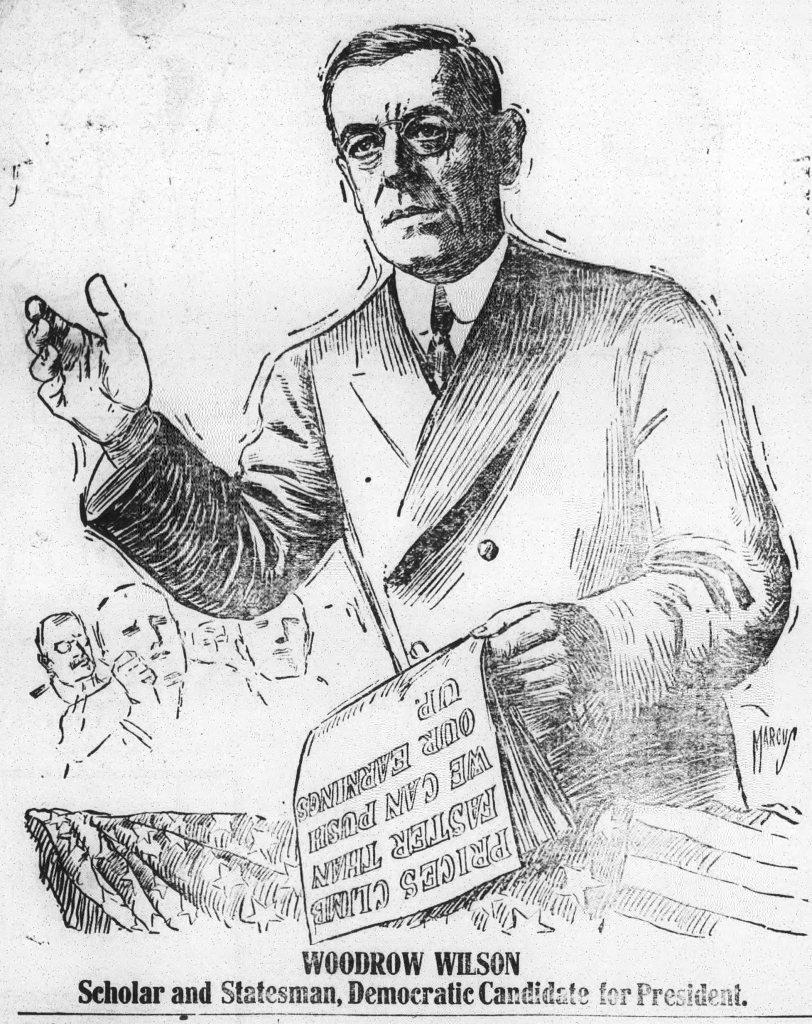As news of the 2024 presidential election ramps up, more issues of The Mooresville Enterprise added to our site bring us news from a 100-year-old primary race. This batch of the Enterprise, spanning from 1910-1917, was made available thanks to our partner, the University of North Carolina at Chapel Hill, as well as funding from the Library Services and Technology Act (LSTA).
As divisive as our current political landscape looks, the presidential election of 1912 might give it a run for its money. The seated president, William Howard Taft, was a Republican that succeeded the popular Theodore Roosevelt (with Roosevelt’s blessing). However, Taft was apparently too conservative of a president for Roosevelt’s taste, so Roosevelt decided to challenge him in the Republican primary—with no success.
The Enterprise article begins, “The Republican National Convention at Chicago Saturday night at 9:10 nominated President Taft as the candidate for president on the first ballot, the Roosevelt forces having declined to vote in the convention. The scenes depicted in the telegraph dispatches indicate that the Taft forces had everything their way from the beginning.”
So, instead of running as a Republican, Roosevelt split off and ran as the candidate for his new party, the Progressive party. The Progressives later became known as the Bull-Moose party, perhaps in relation to Roosevelt’s attempted assassination, after which he spoke for 90 minutes with a bullet in his chest and declared, “I don’t know whether you fully understand that I have just been shot, but it takes more than that to kill a Bull Moose.”
On the other side, Democrats nominated New Jersey Governor Woodrow Wilson. Wilson was able to unseat Taft and win the presidency in a landslide with 435 electoral votes (Roosevelt bested Taft 88-8). And, in the background of the race—with no electoral votes—was Socialist candidate Eugene V. Debs. Debs continued to rally against Wilson after his defeat, especially once Wilson brought the U.S. into the First World War. As a pacifist, Debs was put in prison under the federal Espionage Act for “anti-war” speeches, and he campaigned for president again from his cell in 1920.
While this election was clearly full of drama, contemporary voters might laugh at some of the top national issues at stake in 1912. Some of the listed tenets of the Republican platform included “Favors limiting hours of labor of women and children and protection of wage earners in dangerous occupations,” “Favors parcel post,” “Believes that federal government should assume part control of Mississippi river and help prevent flood disasters,” and “Favors ample equipment of life saving on ships.” Both the Democrats and Republicans seemed to be on the same page about trust-busting and monopolies, one of the biggest issues of the early 20th century (though Democrats criticized Republican’s anti-trust record). And the Progressive/Bull Moose party seemed to be based on whatever Theodore Roosevelt wanted—including women’s suffrage, which he may have understood as his path to a third term.
You can see all available issues of The Mooresville Enterprise here and explore all of our digital newspapers by location, type, and date in our North Carolina Newspapers collection. To see more materials from UNC Chapel Hill, you can visit their partner page and their website.


